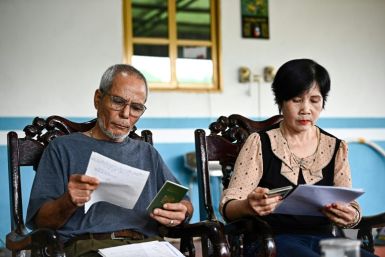Australia's Lynas Urged to Have More Environment Safeguards
Malaysian Rare Earths Plant
An independent team studying the environmental impact of Australia's Lynas Corp.'s proposed rare earths facility in Malaysia said more safety measures need be in place.
The study led and conducted by members of the International Atomic Energy Agency said Lynas IAEA report found the plant, which is about 40 percent completed in eastern Malaysia, complied with international radiation safety standards but regulation should be improved.
Among the 11 recommendations by the IAEA are requirements for long-term waste management and decommissioning of the facility.
The ministry said on Lynas would only be given an operating license if it met all the conditions.
On Thursday, the listed firm Lynas requested for a trading halt and still hopes that its rare earths plant in the state of Pahang will receive a pre-operation license by September.
Rare earths consist of metals critically used for state-of-the-art gadgets such as iPad, iPod, among others to military missile ammunition.
China is one of the biggest producers of the metals and had so far put up policies that limit the export of the material, which prods other countries and firms to search for other sources. The Australian firm Lynas found a reliable amount of resource in the Pahang state of Malaysia. However, protests about its environmental implications have marred the project.
China's Rare Earths firms announce joint venture
China's two large producers of rare earths have announced to merge their production capacities to cope with the tightening industry rules of Beijing.
Rising Nonferrous Metals Share Co Ltd and Inner Mongolia Baotou Steel Rare-Earth (Group) Hi-tech Co Ltd. - the listed affiliates of state-owned companies - said they signed a deal this week to cooperate 'extensively' to produce the highly in demand metals.
In separate disclosures filed before the Shanghai stock exchange, the companies said they will work together on capital raising and the technologically-based processing of the 17 elements critical in producing high-end gadgets from iPods, electric-fired cars, and even missile ammunitions.
The companies said: "To cooperate with each and maintain market stability."






